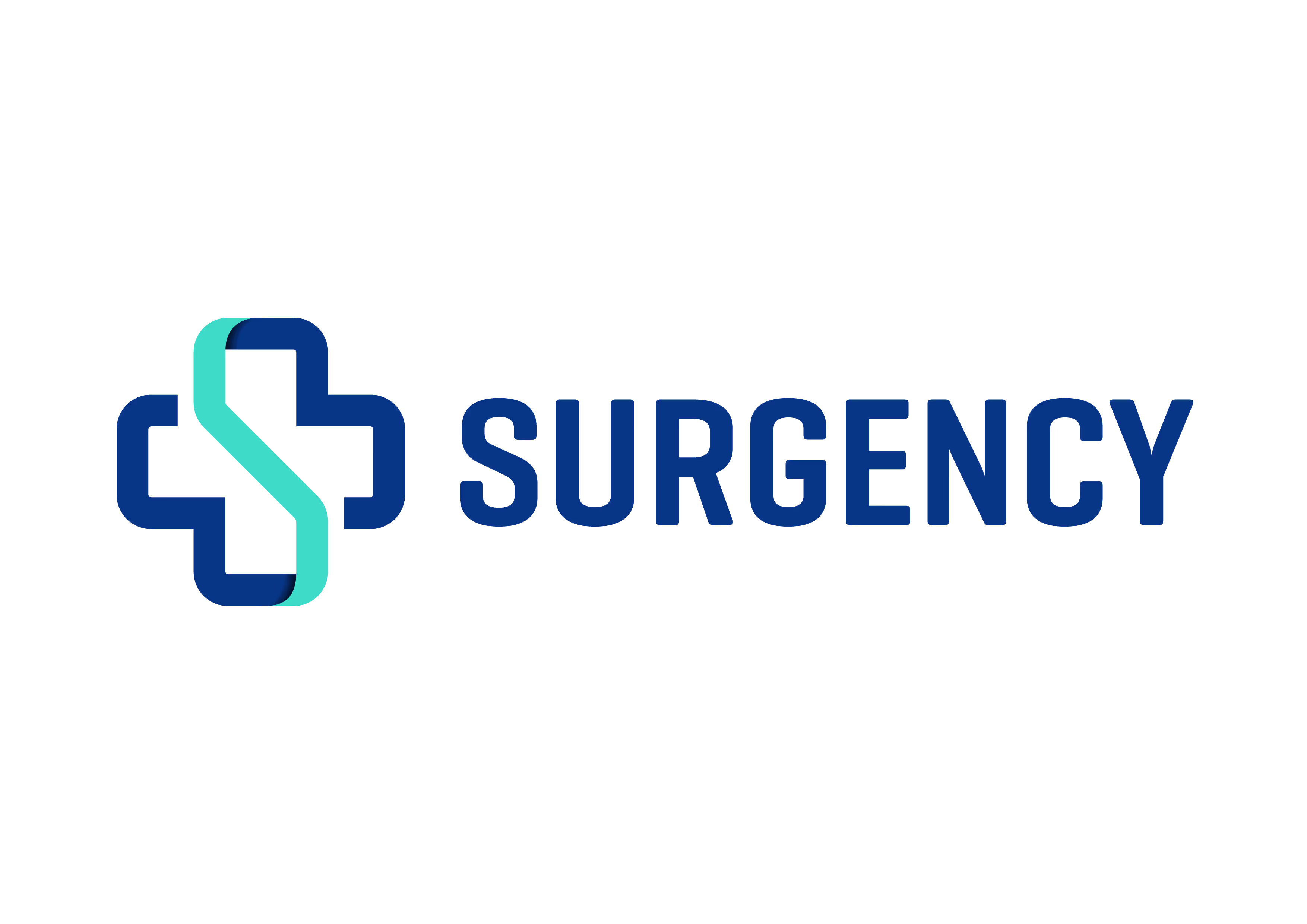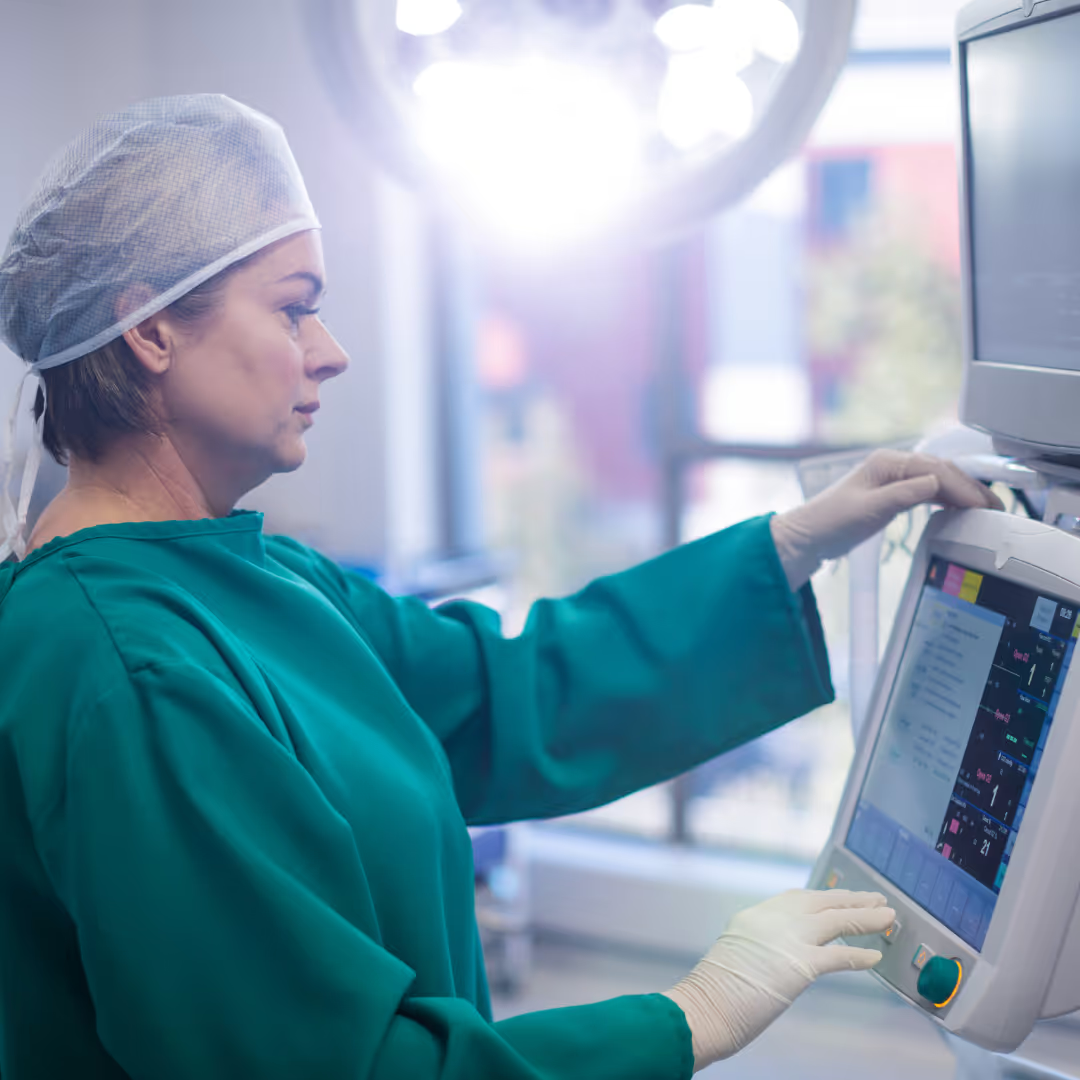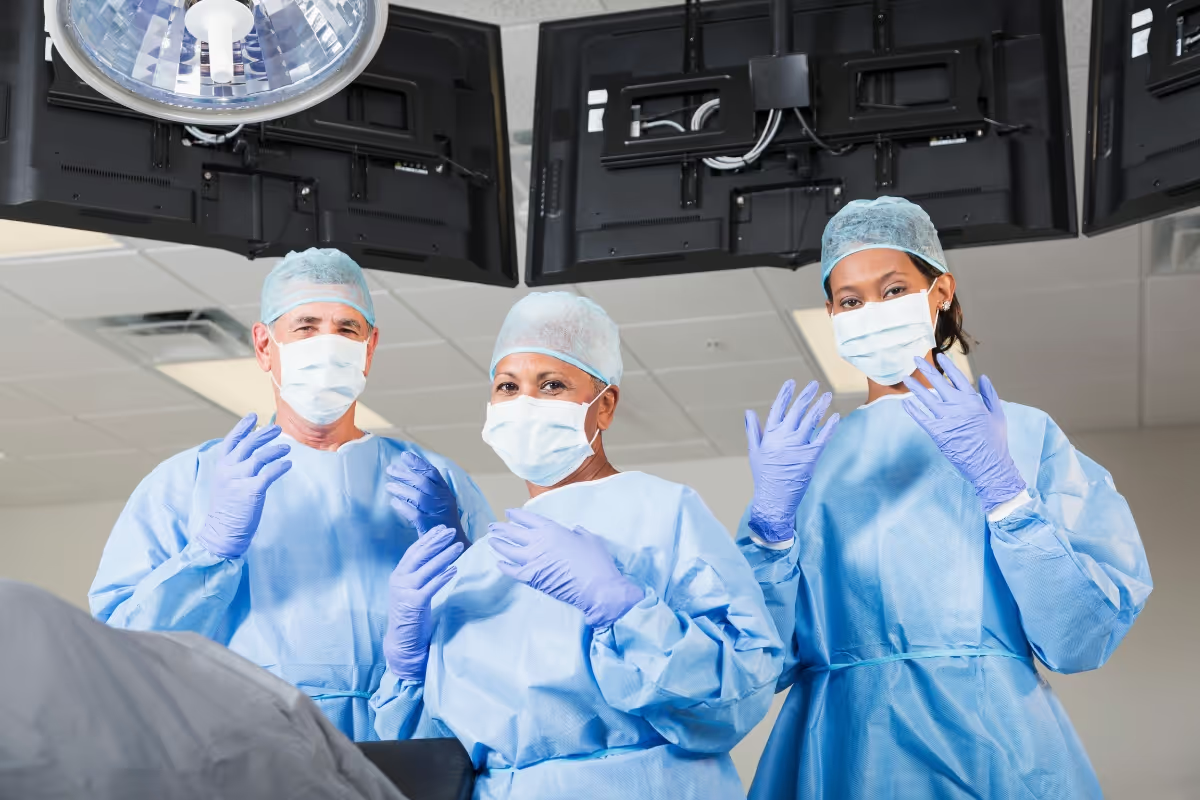1. Big Picture: What “Good Credentials” Actually Mean
When you look at a surgeon’s profile, you are really asking:
- Are they allowed to operate on people in Canada?
- Are they properly trained in the right specialty?
- Do they have extra experience that fits my specific surgery?
So we’ll break credentials into three levels:
- Must‑have (non‑negotiable). Legal and professional basics. If these are missing or unclear, treat it as a red flag.
- Strongly recommended (for most surgeries). Things like the right specialty certification and hospital privileges.
- Ideal / “nice to have” (procedure‑specific). Extra training, fellowships, and experience that make them a particularly good fit for your exact procedure.
We’ll also walk through what “ideal” looks like for the major surgical specialties:
- Orthopedic surgery
- ENT (ear, nose, throat)
- Urology
- Gynecology
- General surgery

2. Core Credentials Every Surgeon in Canada Should Have
Think of this as a basic safety checklist. If any of these are missing, pause, and investigate.
2.1 Recognized Medical Degree
What to look for:
- MD (Doctor of Medicine)
- MB BS (common in the UK/Commonwealth)
- DO (Doctor of Osteopathic Medicine, usually U.S.‑trained)
For international graduates:
- Their medical school should be listed in the World Directory of Medical Schools (WDOMS).
- They must have completed extra equivalency and licensing steps in Canada (the provincial college will show if they are fully licensed).
Why this matters:
- This confirms they have a proper medical education, not a “shortcut” or unrecognized program.
2.2 LMCC (Licentiate of the Medical Council of Canada)
LMCC means they have:
- Passed the Medical Council of Canada exams (MCCQE Part I, and historically Part II), and
- Completed at least 12 months of accredited postgraduate training (residency).
Why this matters:
- LMCC is a common stepping‑stone to full provincial licensure. It signals they’ve cleared national standards, not just local ones. If a surgeon is listed in the provincial directory (see table below), they'll have their LMCC.
2.3 Provincial or Territorial Licence
Your surgeon must hold an active, full licence in the province or territory where they practice. You can verify yourself via Provincial College directory.
What you can check on the public register:
- Are they currently licensed?
- What is their specialty?
- Are there any restrictions on their practice?
- Any disciplinary history?
Why this matters:
- This is your main safeguard. If they are not in good standing with their provincial college, you should not proceed.
2.4 Royal College Specialty Certification (FRCSC)
Most surgeons you’ll see should have FRCSC after their name:
FRCSC = Fellow of the Royal College of Physicians and Surgeons of Canada
This means they have:
- Completed a full Royal College‑accredited residency (usually 5–7+ years after medical school), and
- Passed strict national specialty exams.
Examples:
- FRCSC (Orthopedic Surgery)
- FRCSC (General Surgery)
- FRCSC (Otolaryngology – Head & Neck Surgery) – often called ENT
- FRCSC (Plastic Surgery)
- FRCSC (Urology)
- FRCSC (Obstetrics & Gynecology) – for gynecologic surgery
- FRCSC (Ophthalmology)
- FRCSC (Neurosurgery)
- FRCSC (Cardiac Surgery)
Why this matters:
- This is the gold‑standard badge that the person is a fully trained specialist surgeon in Canada.
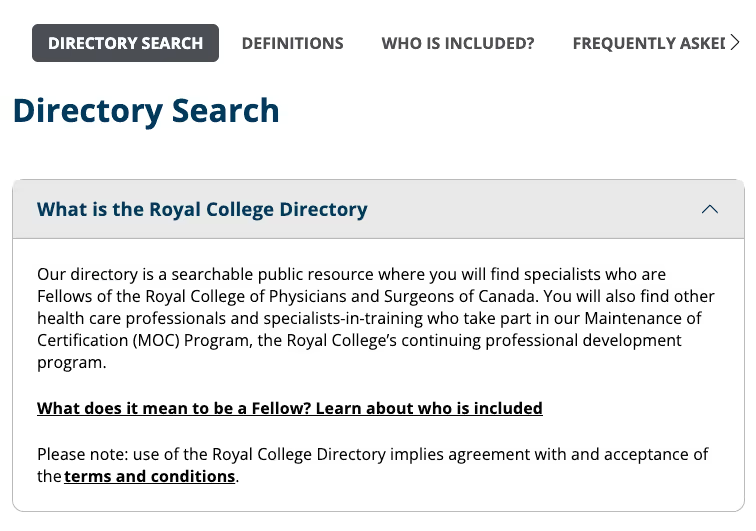
3. What Extra Training and Experience Looks Like
Once you’ve confirmed the basics (degree + LMCC + licence + FRCSC), you can look for extras that match your exact surgery.
3.1 Fellowship Training
A fellowship is usually 1–2 extra years of highly focused training after specialty certification.
Examples:
- Orthopedic: sports medicine, arthroscopy, joint replacement (arthroplasty), spine, hand and upper extremity, foot and ankle, pediatric orthopedics.
- General surgery: bariatric/metabolic surgery, complex hernia/abdominal wall, hepatobiliary (liver, pancreas, bile ducts), advanced minimally invasive surgery.
- ENT: rhinology (sinus and skull base), laryngology (voice and airway), facial plastics, sleep surgery.
- Urology: endourology (minimally invasive), uro‑oncology (cancers), andrology/microsurgery (fertility, vasectomy reversal), female pelvic/urology.
- Gynecology: minimally invasive gynecologic surgery (MIGS), urogynecology/female pelvic medicine, endometriosis excision.
- Plastic surgery: breast reconstruction/microsurgery, craniofacial, aesthetic surgery, hand surgery.
- Ophthalmology: oculoplastics (eyelids and orbit), cornea, complex cataract, retina.
- Neurosurgery: spine, vascular, skull base, functional, pediatric neurosurgery.
- Cardiac surgery: minimally invasive/robotic, aortic surgery, transplant.
Why this matters:
- Fellowships show deep practice in a narrow area. Often the type of surgery you’re considering.
3.2 Other Helpful Signals
These are not always listed, but worth asking about:
- Hospital privileges
- Which hospitals allow them to operate there?
- For which procedures? This means a hospital has reviewed their training and is willing to back them, including access to ICU and emergency resources if something goes wrong.
- Memberships in professional societies, e.g.
- Canadian Arthroplasty Society
- Canadian Spine Society
- Canadian Society of Otolaryngology – Head & Neck Surgery
- Canadian Urological Association
- Canadian Society of Plastic Surgeons
- Society of American Gastrointestinal and Endoscopic Surgeons (SAGES)
- American Shoulder and Elbow Surgeons
- International board certifications, e.g.
- American Board of Orthopaedic Surgery, American Board of Surgery – often seen if they trained or practiced in the U.S. as well.
- American Board of Orthopaedic Surgery, American Board of Surgery – often seen if they trained or practiced in the U.S. as well.
- Participation in registries, research, and teaching
- Do they track outcomes in a registry?
- Do they publish research or teach residents/fellows?
These extras don’t replace the basics, but they suggest a surgeon who is engaged, up‑to‑date, and accountable.

4. Ideal Credentials by Major Specialty
Below, Required assumes:
- Recognized medical degree
- LMCC
- Active provincial/territorial licence
- FRCSC in the right specialty
If any of those are missing, treat it as a red flag.
4.1 Orthopedic Surgery (Bones, Joints, Sports Injuries)
Common private procedures:
- Arthroscopy (hip, knee, shoulder, elbow, ankle, wrist)
- ACL/MCL/MPFL reconstruction
- Meniscal repair
- Labral repairs, rotator cuff repair
- Joint replacements (hip, knee, shoulder, ankle)
- Epicondyle release, hand and foot procedures
- “Tommy John” (ulnar collateral ligament) surgery
Required:
- FRCSC (Orthopedic Surgery)
Ideal / nice to have (depending on your surgery):
- Sports medicine / arthroscopy fellowship – for ligament, meniscus, and shoulder instability work.
- Shoulder and elbow fellowship – for advanced shoulder surgery and elbow ligament work (including overhead athletes).
- Hand and upper extremity fellowship – for wrist, hand, nerve, and tendon surgery.
- Foot and ankle fellowship – for complex ankle/foot reconstructions and sports injuries.
- Arthroplasty (joint replacement) fellowship – for hip, knee, and shoulder replacements.
- Spine surgery fellowship – if they also do spine surgery (some overlap with neurosurgery).
- High annual case volume in your exact procedure – ask for numbers over the last 12 months.
- Participation in arthroplasty or joint registries (for replacements).
4.2 ENT (Otolaryngology – Head & Neck Surgery)
Common private procedures:
- Septoplasty (deviated septum)
- Functional endoscopic sinus surgery (FESS)
- Balloon sinuplasty
- Turbinate reduction
- Eustachian tube balloon dilation
- Sleep apnea and snoring surgery
- Tonsillectomy
- Eardrum repair
- Parotidectomy (salivary gland)
- Microlaryngoscopy (voice box)
Required:
- FRCSC (Otolaryngology – Head & Neck Surgery)
Ideal / nice to have:
- Rhinology fellowship – for complex sinus and skull base work.
- Laryngology fellowship – for voice and airway‑focused procedures.
- Sleep surgery training – if they’re operating for snoring or sleep apnea.
- Facial plastic training – if doing cosmetic or reconstructive nasal/facial work.
- Use of image guidance for advanced sinus surgery where appropriate.
- Hospital privileges for parotid, airway, and higher‑risk cases.
4.3 Urology (Kidneys, Bladder, Prostate, Men’s Health)
Common private procedures:
- Vasectomy and vasectomy reversal
- Circumcision
- Rezūm therapy and similar prostate interventions
- Some cosmetic men’s health procedures (e.g., penile implant)
Required:
- FRCSC (Urology) for urologic surgeries.
Ideal / nice to have (by procedure):
- Andrology / microsurgery fellowship – especially for vasectomy reversal or fertility‑related surgery.
- Endourology fellowship – for advanced minimally invasive kidney/ureter/prostate work.
- Men’s health / sexual medicine experience – for cosmetic or sexual function‑related procedures.
- Device‑specific training – for Rezūm and other energy‑based therapies.
- Clear explanation of how often they perform your exact procedure.
4.4 Gynecology and Women’s Health
Common private procedures:
- Endometriosis surgery (including excision)
- Hysterectomy (removal of uterus)
- Oophorectomy (ovary removal)
- Salpingectomy (fallopian tube removal)
- Labiaplasty
- Clitoral hood reduction
- “Vaginal rejuvenation” and other aesthetic or functional procedures
Required:
- FRCSC (Obstetrics & Gynecology) for gynecologic surgery.
Ideal / nice to have:
- MIGS (Minimally Invasive Gynecologic Surgery) fellowship – for laparoscopic or robotic hysterectomy, endometriosis work, and complex pelvic surgery.
- Urogynecology / female pelvic medicine fellowship – for prolapse, incontinence, and pelvic floor reconstructions.
- Endometriosis‑specific training – if you have moderate or severe disease; ask directly about their endometriosis caseload.
- For aesthetic gynecology (e.g., labiaplasty):
- Documented training in aesthetic and functional gynecologic surgery, and
- Very clear informed consent that covers both medical and psychological aspects.
4.5 General Surgery
Common private procedures:
- Hernia repair (inguinal, umbilical, ventral, incisional)
- Complex or “core muscle” repair
- Gallbladder removal (cholecystectomy)
- Hemorrhoid surgery
- Pilonidal sinus surgery
- Endoscopy: colonoscopy, gastroscopy
Required:
- FRCSC (General Surgery)
Endoscopy note:
Some colonoscopies and gastroscopies are also performed by:
- FRCPC (Gastroenterology) – internal medicine subspecialists who are not surgeons but are highly trained in endoscopy.
Ideal / nice to have:
- Hernia / abdominal wall fellowship – for complex or recurrent hernias, large abdominal wall reconstructions, and mesh expertise.
- Minimally invasive or HPB (hepatopancreatobiliary) fellowship – for advanced laparoscopic work, particularly in upper GI and biliary surgery.
- Participation in hernia or surgical quality registries.
- For advanced endoscopy:
- Advanced endoscopy fellowship – for complex polyp removal and therapeutic procedures.
- Transparent quality metrics – such as adenoma detection rates and complication rates.
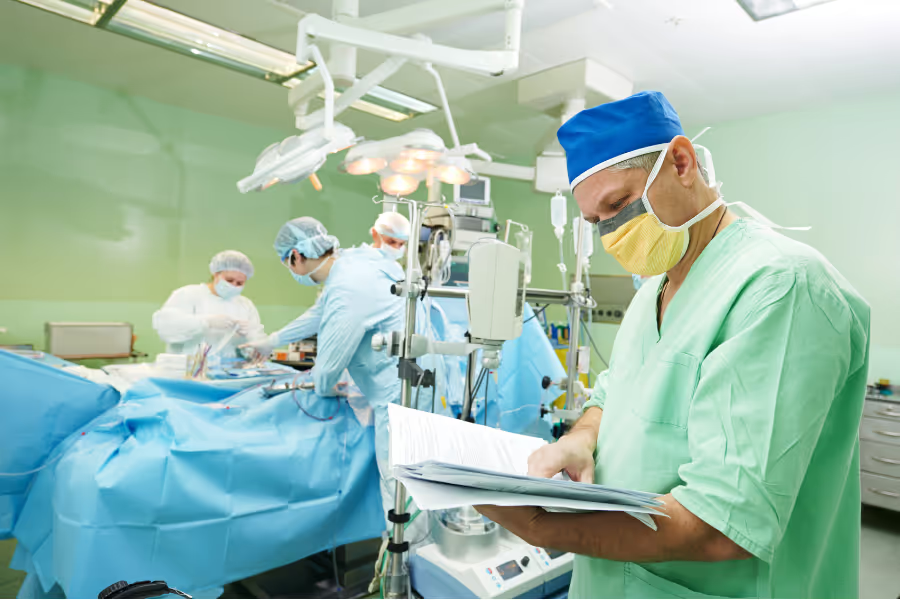
5. Other Important Specialties (Quick Overview)
You may also see private or mixed public‑private options in these areas:
5.1 Spine Surgery
Common procedures:
- Spinal fusion
- Laminectomy and discectomy (for disc herniations)
- Decompression for spinal stenosis
Required:
- FRCSC (Orthopedic Surgery) or FRCSC (Neurosurgery)
Ideal / nice to have:
- Dedicated spine surgery fellowship
- Experience in deformity and complex spine (if your case is complex)
- Multidisciplinary spine team (physiatry, pain specialists, etc.)
- Hospital privileges with ICU access for major surgeries.
5.2 Plastic, Reconstructive, and Cosmetic Surgery
Common private procedures:
- Breast surgeries (augmentation, lift, reduction, gynecomastia)
- Body contouring and liposuction
- Tummy tuck (abdominoplasty), post‑weight‑loss surgery
- Face and neck lifts, eyelid surgery, brow lift, rhinoplasty, chin implant, ear pinning (otoplasty)
- Aesthetic genital surgery (labiaplasty, clitoral hood reduction, some vaginoplasty procedures)
- Non‑surgical injectables (Botox, fillers, lip injections)
Required:
- For surgery: FRCSC (Plastic Surgery)
- For injectables: an authorized medical professional (varies by province) working within their legal scope, with clear, specific training.
Ideal / nice to have:
- Aesthetic, breast, or craniofacial fellowship – especially for complex facial or breast work.
- Microsurgery fellowship – for complex reconstructions.
- Membership in recognized aesthetic societies.
- Device‑specific/vendor training – for energy‑based fat reduction, skin tightening, etc.
- Hospital privileges for complex reconstructive or combined cases, even if your surgery is in a private clinic.
5.3 Bariatric (Weight‑Loss) and Metabolic Surgery
Common procedures:
- Gastric sleeve
- Roux‑en‑Y gastric bypass
- Mini‑bypass
- Band to sleeve / band to bypass revisions
- Sleeve to bypass
- Other revision surgeries
- (Legacy) LAP‑BAND
Required:
- FRCSC (General Surgery)
Ideal / nice to have:
- Bariatric or metabolic surgery fellowship.
- A multidisciplinary bariatric program (dietitian, psychology, endocrinology, nursing).
- Hospital privileges and access to ICU, especially for revisions and high‑risk patients.
- Pathways aligned with major bariatric societies (e.g., ASMBS/IFSO standards), even if not explicitly named.
5.4 Cardiac Surgery
Commonly very complex and usually done in major hospitals. There are no private surgeons in Canada.
Required:
- FRCSC (Cardiac Surgery)
Ideal / nice to have:
- Advanced cardiac fellowship – e.g., minimally invasive/robotic, aortic, transplant.
- Practice at a high‑volume centre with full ICU, perfusion, and emergency capacity.
5.5 Neurosurgery
Includes:
- Brain surgery
- Spine surgery (overlapping with orthopedic spine)
- Functional procedures (e.g., for movement disorders)
Required:
- FRCSC (Neurosurgery) – typically 6–7+ years of training, often longer.
Ideal / nice to have:
- Subspecialty fellowship – e.g., spine, vascular, skull base, functional, pediatric.
- Affiliation with an academic or tertiary centre.
- Multidisciplinary teams for complex cases.
5.6 Ophthalmology
Common procedures:
- Cataract surgery
- Some eyelid surgeries (blepharoplasty) – overlaps with plastic surgery
Required:
- FRCSC (Ophthalmology) for any intraocular surgery (e.g., cataracts).
Ideal / nice to have:
- Oculoplastics fellowship – for complex eyelid/orbit work.
- Complex cataract fellowship – for difficult lenses or high‑risk eyes.
- High case volume and access to advanced lens technologies.
6. How to Verify Credentials Yourself
You do not have to “just trust” a profile. You are allowed to ask for proof.
Key places and questions:
- Provincial college register (see the table in section 2.3 above)
- Check: active licence, specialty, restrictions, and any discipline history.
- Review the Royal College directory
- Fellowship proof
- Ask: “Where did you do your fellowship(s), and when?”
- You can request the program name and dates.
- Hospital privileges
- Ask: “Which hospitals grant you privileges, and for which procedures?”
- Numbers and outcomes
- Annual volume for your exact surgery (last 12 months).
- Total lifetime cases in that procedure.
- Outcomes if available (infection, reoperation, readmission) compared with benchmarks.
A confident, trustworthy surgeon or clinic should be comfortable answering these calmly and clearly.
7. What Patients Often Miss (But Should Check)
Even the best surgeon needs the right environment around them.
Key areas to ask about:
- Facility accreditation
- Who accredits the clinic
- National: Accreditation Canada, CAAASF
- Provincial: CPSBC, BC; CPSA, AB; CPSS, SK; CPSM, MB; CPSO, ON; CMS, QC
- When was the last review?
- Who accredits the clinic
- Anesthesia team
- Are anesthesiologists Royal College‑certified?
- Is there a clear plan for managing complications?
- Emergency and escalation plan
- Is there a crash cart, protocols, and a formal agreement with a nearby hospital?
- Aftercare and continuity
- Who answers the phone if you have problems after surgery?
- How are your results and notes shared with your family doctor?
- Data transparency
- Will they discuss outcomes in a clear, honest way (even if numbers are not perfect)?
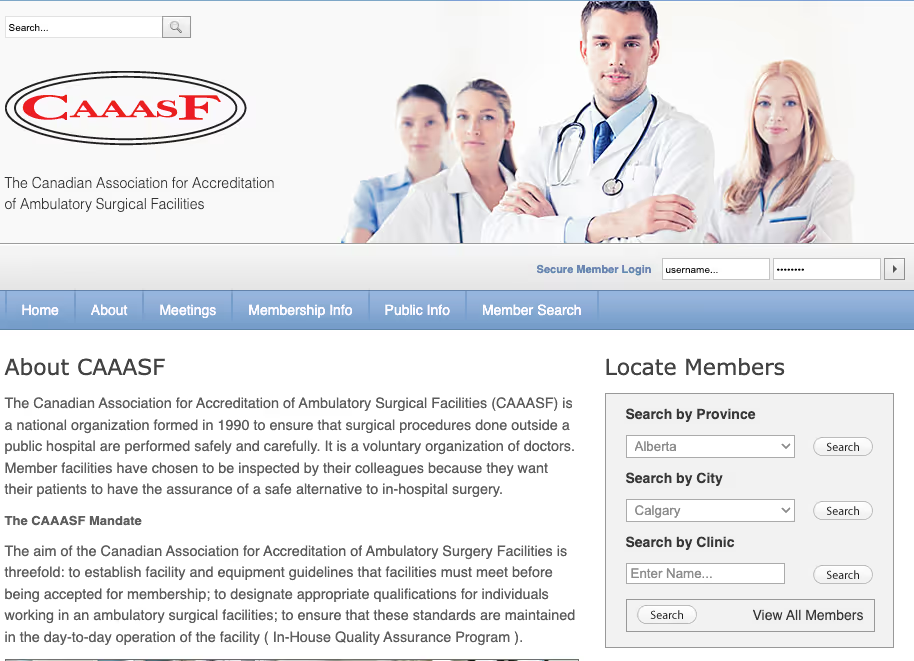
8. Plain‑Language Checklist for Patients
A. Must‑Have Credentials
- Recognized medical degree (MD/MB BS/DO; WDOMS‑listed if international).
- LMCC (Canadian licentiate).
- Active provincial or territorial licence (no restrictions that affect your surgery).
- FRCSC in the right specialty for your procedure.
- Hospital privileges (especially for anything complex or higher‑risk).
B. Procedure‑Specific Experience
- Annual volume in my exact procedure (last 12 months): ______ cases.
- Lifetime cases in my exact procedure: ______ cases.
If available:
- Surgical site infection rate (SSI): ______ %.
- Reoperation rate (30–90 days): ______ %.
- Readmission rate (30–90 days): ______ %.
- Compared to benchmarks: Better / Similar / Worse.
C. Facility Standards
- Clinic/hospital accreditation (name + last review date): ___________________.
- Anesthesia by Royal College‑certified anesthesiologists: Yes / No.
- Emergency readiness (crash cart, protocols, transfer agreement): Confirmed / Not clear.
Red flag: No clear accreditation, or vague answers about emergency and transfer plans.
D. Aftercare and Continuity
- Written discharge plan with who to call and key warning signs: Provided / Not provided.
- Follow‑ups: In‑person / Virtual / Both; schedule: __________.
- Rehab/physio plan and referrals (if relevant): Provided / Not provided.
- Coordination with my family doctor: Yes / No.
E. Logistics and Access
- Out‑of‑town plan (how long to stay nearby, what to do in an emergency): Clear / Not clear.
- Accessibility (parking, elevator, accessible washrooms): Confirmed / Not clear.
- Support person/caregiver plan: Confirmed / Not clear.
F. Costs and Documentation
- Itemized estimate (surgeon, facility, anesthesia, devices/implants, diagnostics): Received / Not received.
- What is included and not included is clear: Yes / No.
- Deposit, refund, and rescheduling policies: Clear / Not clear.
- Documentation suitable for insurance or medical expense tax credit (METC): Yes / No.
G. Informed Consent and Expectations
- Alternatives discussed (including non‑surgical or public system options): Yes / No.
- Your personal risk profile reviewed and discussed: Yes / No.
- Expected recovery timeline explained: Yes / No.
- Pain management and any opioid‑sparing plans explained: Clear / Not clear.

9. Final Thoughts
You do not need to become an expert in medical training to verify a surgeon's credentials. You just need to:
- Confirm the must‑haves (degree, LMCC, licence, FRCSC).
- Look for procedure‑specific experience and fellowships that match your needs.
- Check that the facility, anesthesia team, and aftercare are safe and organized.
- Take your time to compare surgeons using the worksheet.
Quality surgeons understand that you are making a big decision. They should welcome your questions and be transparent about their credentials and results.
This guide is informational only and does not replace medical advice from a qualified health professional.
Every surgeon on the Surgency platform is already fully vetted, but it never hurts to do your own research as well. If you ever have any questions, please feel free to reach out to us directly.

